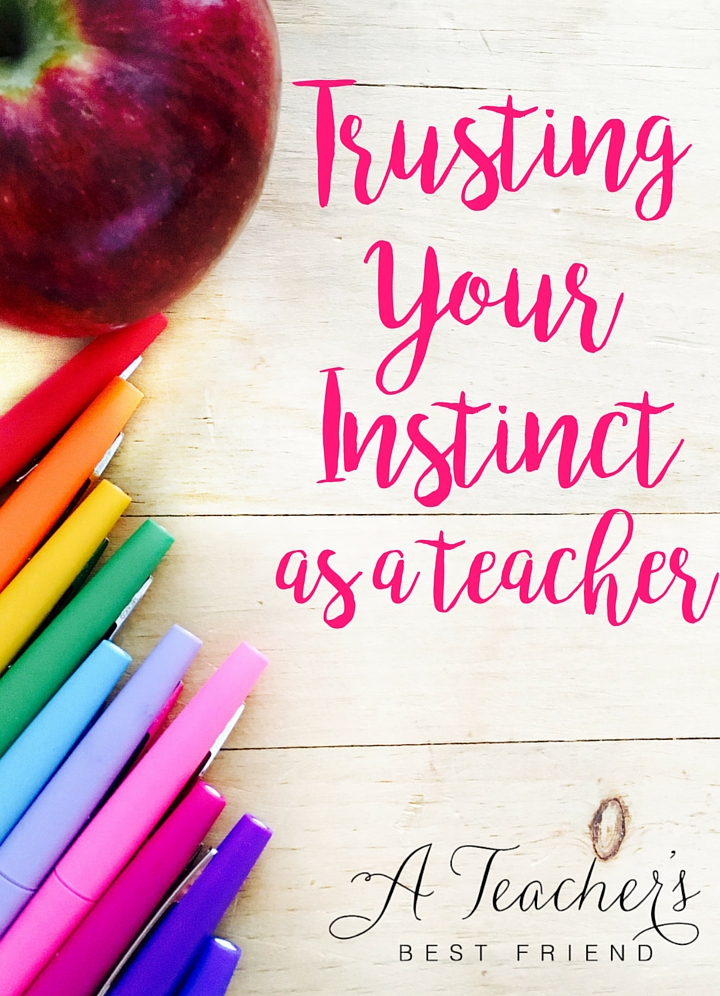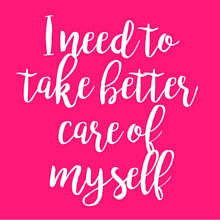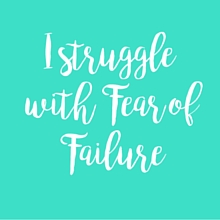 Do you ever find yourself writing and rewriting and re-rewriting an email to a colleague, parent, or your principal? Do you question yourself, doubt yourself, or feel unsure? Whether it is an instructional decision, a difficult conversation, or our own feelings – why is it so difficult for us to trust our instincts?
Do you ever find yourself writing and rewriting and re-rewriting an email to a colleague, parent, or your principal? Do you question yourself, doubt yourself, or feel unsure? Whether it is an instructional decision, a difficult conversation, or our own feelings – why is it so difficult for us to trust our instincts?
The simple answer? … Because we don’t trust ourselves at our core. (ouch)
And why don’t we trust ourselves? … For a variety of reasons – let’s explore some of them:
Judgement – Our Inner Critic
One of the critical elements of trust is non-judgement. I have to know that I can tell my best friend something and that she isn’t going to judge me for it. Unfortunately, we don’t always extend that same level of grace to ourselves – and therefore we can’t really trust ourselves.
The minute we screw up, we are already jumping down our own throats, on our own back, and basically pounding ourselves into the floor. Maybe your inner critic isn’t so violent, but I bet if you are honest, your inner critic says things to you that you would never tolerate coming from someone else. Am I right?!
This can wreak havoc on our own ability to trust ourselves. We have to extend more grace and less judgement to ourselves.
Practice it! One of my favorite exercises for silencing the inner critic is to remember what is TRUE in the moment. Connecting to the truth can be difficult at first, so use your support network to help you flex this muscle initially. Call a friend, tell her the situation, and listen as she tells you the truth – “It really isn’t that bad in the broad scheme of things” or “This is not as big of a deal as you are making it out to be” or “You’ve got this! Trust yourself!”
Boundaries – or Lack Thereof
Trust is built when I know that person has good boundaries and will tell me if I overstep them. They will also respect my boundaries. But again – this one is difficult when we put it up to the mirror.
Do you have boundaries for yourself that are important for you to keep?
For example – I have a boundary around my time on social media because it can breed things that I don’t like feeling (comparison most of all) – and it’s a waste of time for me. I have a set number of times I go on social media each day – and I stick to it.
You may have a boundary like that – or one around your diet and exercise. You may have boundaries around the number of nights a week you’ll spend away from home, or the amount of money you’ll spend on non-essentials etc. Hopefully, you also have boundaries around the types of things you will / will not do.
Boundaries are good for us! They help us stay in alignment with our values and intentions.
Practice it! If you struggle with self-trust – examine where you think there may be a boundary that you need to place in your life to protect yourself and help you to stay in alignment with what is important to you.
Stingy Self-Compassion
One of the elements of trust as defined by Brene Brown in her Anatomy of Trust class is generosity. This means that we extend the most generous interpretation possible to the behavior of someone else – and that that person extends us the most generous interpretation of our behavior.
My friend, Teagan, is such a great example of this for me – and it’s one of the key reasons I trust her. If I flake on a commitment or I’m struggling with something, she always gives me the benefit of the doubt. She assumes I have good intentions – ALWAYS. I never have to explain my behavior to her. She just gets it.
But I fail HARD at this one when I put it in front of the mirror.
Instead of extending myself a generous interpretation – sometimes I am stingy, judgemental, and assume the worst.
The antidote here is self-compassion and grace. We have GOT to extend ourselves a generous interpretation of our own behavior (aka grace and compassion turned inward!) This means that when something goes wrong – you realize a mistake you made or you’ve offended someone etc – you MUST be able to say “I did my best in the moment”.
Practice it! One of my favorite exercises for self-compassion is the “best-friend-trick”: When you are in a self-deprecating moment, STOP, take a deep breath, and think about what your best friend would say to you in that moment. If you are too upset to even do this exercise, then call your best friend and see what she says to you.
Being Last on Our Own List – Lack of Self-Care
I believe there is a very strong link to lack of self-care and lack of self-respect. Many of us put ourselves last on our to do list. We take care of everyone else first, and there is little to nothing left for us.
That, my friends, unfortunately is a really common sign of lack of self-respect.
We have to stay in touch with what we NEED – rest, nutrition, sleep, balance etc. – and be responsible to ourselves to take care of those needs.
The beauty of this one is that showing yourself self-care (even starting with one little action) – sows deep the seeds of self-trust. When we can trust ourselves to take care of our needs, confidence, non-judgement, self-compassion etc. comes easy! Trust me on this one!
Practice it! Think of one thing you body really needs you to do today (a nap? a healthy meal? a massage?) and go do it. Give yourself permission to take care of yourself today. Then see what it does for your sense of self-respect and self-trust.
Perfectionism – Fear of Making a Mistake
A lot of times our lack of self-trust comes from a deep fear of making the wrong choice. (duh – right?!)
How can we trust our instincts when there is a possibility those instincts might lead us down the wrong path?!
Well – that right there shows the flaw in our thinking – that there IS a wrong path.
I call this one perfectionism because it’s the binary thinking – the right vs. wrong path – that perfectionists engage in. They think that success should be a straight line upward.
But that’s not reality.
We all make mistakes – and we learn from them – and they are an important part of our journeys and stories.
So what if we shifted the question from “will I make the right choice?” to “what might I learn from this choice?”
When we can make that shift and stay open to what the journey will teach us, it takes the “teeth” out of the mistake. That small shift in our thinking can completely neutralize our fear.
Practice it! Think of a time when you struggled with a decision. What was providing the “ammo” for the struggle? Was it fear of making a mistake? Now think of what happened once you made the decision. What did you learn? What wisdom did you take away from that situation?
Almost every client I have struggles with self-trust.
It seems easier sometimes to trust others – but it’s critically important that we build our own self-trust so that we can be confident in our decisions – even if they turn out to be wrong or mistakes. Seeing them as learning opportunities takes the consequence out of failure.
Which of the roadblocks to self-trust that we explored in this post are true for you?
What do you want to do about it?
All my love,

What do you want to explore now?




Leave a Reply